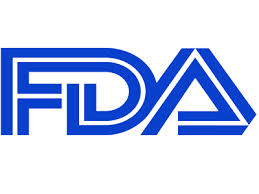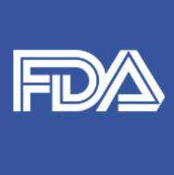Editor's Note: Because trans fats do not pose an "immediate and present danger" to human health, the staff of Food Safety Magazine does not consider this a true "food safety" issue. However, if partially hydrogenated oils (PHO) do in fact lose their GRAS status, then PHOs will be considered an unsafe food additive once the new rules take effect. Thus, we feel it is important for our readers to be aware of ongoing regulatory developments.
The U.S. Food and Drug Administration (FDA) today announced its preliminary determination that partially hydrogenated oils (PHOs), the primary dietary source of artificial trans fat in processed foods, are not “generally recognized as safe” (GRAS) for use in food. The FDA’s preliminary determination is based on available scientific evidence and the findings of expert scientific panels.
The agency has opened a 60-day comment period on this preliminary determination to collect additional data and to gain input on the time potentially needed for food manufacturers to reformulate products that currently contain artificial trans fat should this determination be finalized.
“While consumption of potentially harmful artificial trans fat has declined over the last two decades in the United States, current intake remains a significant public health concern,” said FDA Commissioner Margaret A. Hamburg, M.D. “The FDA’s action today is an important step toward protecting more Americans from the potential dangers of trans fat. Further reduction in the amount of trans fat in the American diet could prevent an additional 20,000 heart attacks and 7,000 deaths from heart disease each year – a critical step in the protection of Americans’ health.”
Consumption of trans fat raises low-density lipoprotein (LDL), or “bad” cholesterol, increasing the risk of coronary heart disease. The independent Institute of Medicine (IOM) has concluded that trans fat provides no known health benefit and that there is no safe level of consumption of artificial trans fat. Additionally, the IOM recommends that consumption of trans fat should be as low as possible while consuming a nutritionally adequate diet.
In recent years, many food manufacturers and retailers have voluntarily decreased trans fat levels in many foods and products they sell. Trans fat can be found in some processed foods, such as certain desserts, microwave popcorn products, frozen pizzas, margarines and coffee creamers. Numerous retailers and manufacturers have already demonstrated that many of these products can be made without trans fat.
Thanks to these efforts, along with public education, the consumption of trans fat in American diets has been significantly reduced. Since trans fat content information began appearing in the Nutrition Facts label of foods in 2006, trans fat intake among American consumers has declined from 4.6 grams per day in 2003 to about 1 gram per day in 2012.
“One of the FDA’s core regulatory functions is ensuring that food, including all substances added to food, is safe,” said Michael Taylor, the FDA’s deputy commissioner for foods and veterinary medicine. “Food manufacturers have voluntarily decreased trans fat levels in many foods in recent years, but a substantial number of products still contain partially hydrogenated oils, which are the major source of trans fat in processed food.”
Following a review of the submitted comments, if the FDA finalizes its preliminary determination, PHOs would be considered “food additives” and could not be used in food unless authorized by regulation. If such a determination were made, the agency would provide adequate time for producers to reformulate products in order to minimize market disruption. The FDA’s preliminary determination is only with regard to PHOs and does not affect trans fat that naturally occurs in small amounts in certain meat and dairy products.
In response to the FDA's announcement, U.S. Senator Tom Harkin (D-IA), chairman of the Senate Health, Education, Labor, and Pensions (HELP) Committee, today issued a statement praising the FDA's actions. The statement noted that this past February, Harkin had sent a letter to FDA, urging the agency to deny GRAS status to partially hydrogenated oil in light of growing research showing the health benefits of such a ban for consumers.
In today's statement, Harkin said, “The consumption of trans fat poses a serious health threat by increasing blood cholesterol and the risk of heart disease—the leading cause of death for Americans. Eliminating artificial trans fats from our food supply will be an enormous step towards improving our public health and reducing our health care costs, as well as potentially helping to prevent thousands of premature, fatal heart attacks each year. The FDA has taken bold action by taking the next steps in examining the ‘safe status’ of partially hydrogenated oil and I applaud the agency for doing so.”
For more information on trans fats in processed foods, see the FDA's Consumer Update page.
View the docket at the Federal Register, Submit comments electronically to the docket through Regulations.gov, To submit comments by mail, send to the FDA at:
Division of Dockets Management (HFA-305)
Food and Drug Administration
5630 Fishers Lane, Rm. 1061
Rockville, MD 20852
All submissions must include the agency name and docket number.



